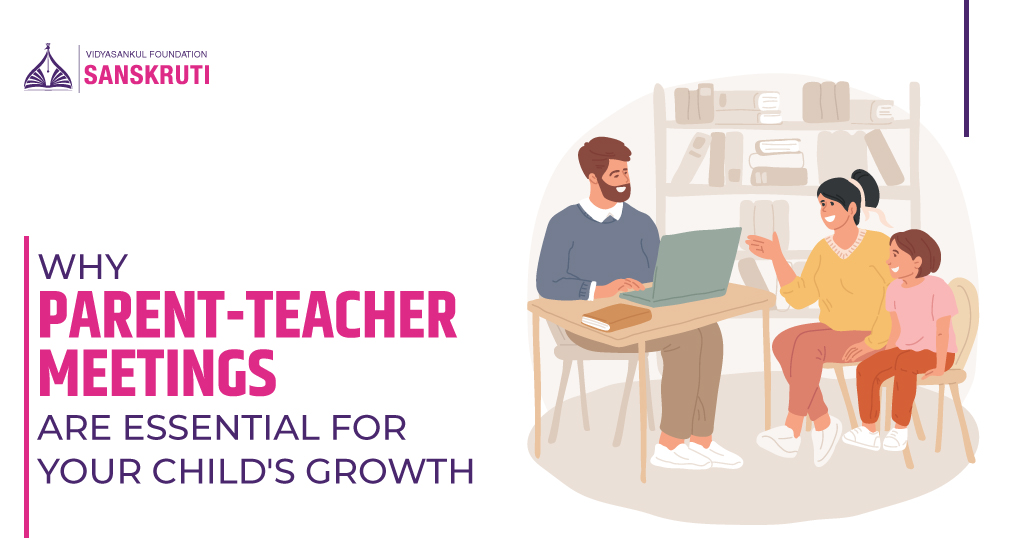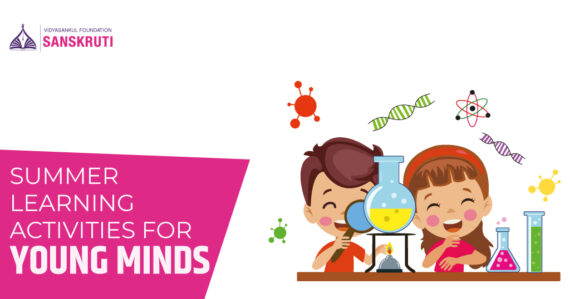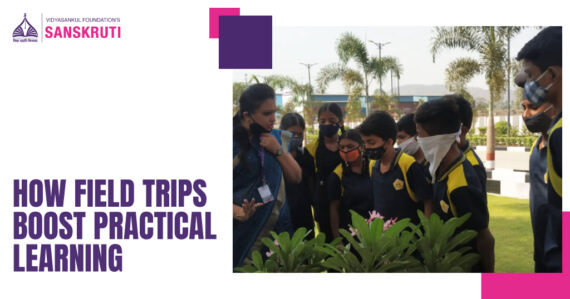Parent-teacher meetings (PTMs) serve as a crucial bridge between home and school, creating a unified support system for your child’s development. These meetings go far beyond simple progress reports – they establish a collaborative environment where educators and parents work together to nurture every aspect of a child’s growth.
At Sanskruti World School, the best secondary school in Boisar, Palghar, we understand that these interactions form the cornerstone of successful educational outcomes. Let’s explore the key reasons why PTMs are indispensable for your child’s holistic development.
1. Comprehensive Academic Progress Monitoring
Regular PTMs provide parents with detailed insights into their child’s academic journey. Teachers share in-depth information about subject-specific performance, learning patterns, and areas requiring attention. These meetings allow for discussions about assignment completion, test scores, and classroom participation that may not be fully captured in report cards. Parents gain an understanding of their child’s learning style, strengths, and challenges, enabling them to provide targeted support at home. Teachers can also recommend specific strategies and resources to enhance learning outcomes.
To help students further, parents can also explore our blog on How a Career Aptitude Test Can Help You Choose the Right Stream in 11th Standard for guidance on academic decision-making.
2. Behavioral and Social Development Assessment
PTMs offer valuable insights into how children interact with peers and adapt to the school environment. Teachers share observations about social skills, emotional regulation, and classroom conduct that parents might not witness at home. This information helps identify potential behavioral concerns early and allows for coordinated intervention strategies. Parents can also provide context about home circumstances that might affect behavior, enabling teachers to better support the student. This collaborative understanding helps create a consistent approach to behavioral development.
3. Early Identification of Learning Challenges
These meetings serve as crucial opportunities for early detection of learning difficulties or developmental concerns. Teachers can share professional observations about attention spans, comprehension levels, or specific subject-related challenges. Early identification allows for timely intervention and support measures, preventing minor issues from becoming major obstacles. Parents and teachers can work together to develop appropriate support strategies, whether through additional tutoring, specialized learning approaches, or professional intervention when necessary.
4. Goal Setting and Progress Tracking
PTMs provide a structured platform for establishing clear academic and developmental objectives. Parents and teachers collaboratively set realistic goals based on the student’s capabilities and potential. These meetings allow for regular review of progress toward these goals, celebrating achievements and adjusting strategies when needed. This collaborative goal-setting approach helps students develop a sense of purpose and direction in their academic journey.
5. Enhanced Home-School Communication
Regular PTMs establish strong communication channels between parents and educators. This ongoing dialogue ensures that both parties stay informed about the child’s progress and can respond promptly to any concerns. The meetings create a comfortable environment where parents can voice their concerns and teachers can provide professional guidance. This open communication helps prevent misunderstandings and ensures everyone works together toward the child’s best interests.
6. Supporting Emotional Well-being
PTMs provide a platform to discuss students’ emotional health and well-being. Teachers can share insights about how children handle stress, manage peer relationships, and cope with academic pressures. Parents can also inform teachers about any personal circumstances affecting their child’s emotional state. This mutual understanding helps create a supportive environment that nurtures emotional intelligence and resilience.
For parents looking for ways to make learning enjoyable for their young children, check out our blog on How to Make School and Learning Fun for Primary Students.
7. Fostering Parental Involvement
These meetings actively encourage parents to participate in their child’s educational journey. Through PTMs, parents gain a deeper understanding of the curriculum, teaching methods, and school expectations. This knowledge enables them to provide more effective support at home and align their guidance with school objectives. Active parental involvement has been shown to significantly improve student motivation and academic outcomes.
Attend PTMs For Your Child’s Bright Future
At Sanskruti World School, the best secondary school in Boisar, Palghar, we prioritize regular and meaningful parent-teacher interactions. Our comprehensive PTM system ensures parents stay fully informed about their children’s academic progress and extracurricular achievements. We believe in creating a collaborative educational environment where parents are active partners in their child’s learning journey. Our dedicated faculty works closely with parents to provide personalized attention and support to each student. We request all parents to actively participate in PTMs and craft a bright future for your child.
Admissions are now open for the new academic session!





